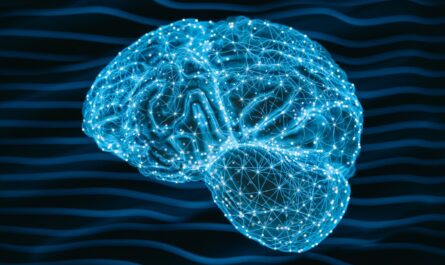In a groundbreaking development, researchers at the University of Southampton and EPFL (Swiss Federal Institute of Technology) have successfully created technology that allows amputees to feel the sensation of wetness through a prosthetic limb. The team’s findings, published in Advanced Intelligent Systems, could revolutionize the functionality and sensory experience of prosthetic hands.
The researchers have designed a sensor that can be attached to a prosthetic hand, which is then connected to a stimulator that makes contact with the wearer’s residual limb. Through this technology, individuals are able to perceive the feeling of wetness through their skin, marking a significant achievement in the field.
While previous research has mainly focused on restoring motor control in prosthetic limbs, sensory feedback is equally crucial. Over the past decade, efforts have been made to restore sensory capabilities, and this latest development represents a major step forward in that regard.
The team at EPFL, led by Dr. Solaiman Shokur, collaborated with clinical partner Professor Emanuele Gruppioni from the INAIL center in Italy to develop a sensor that detects temperature in prosthetics. Building on this work, Dr. Davide Filingeri from the University of Southampton then joined forces with the EPFL researchers to enable wetness detection and measurement capabilities in the prosthesis.
Dr. Filingeri explained that their understanding of wetness perception is closely tied to temperature sensing, as there are specific thermal cues involved in detecting wetness. By leveraging this knowledge, they were able to enable the prosthetic limb to detect and measure wetness levels.
The implications of this breakthrough are significant for amputees, both physically and psychologically. Enhancing the manual dexterity of prosthetic hands is one potential application. For instance, the level of wetness can influence the strength with which an individual grasps an object. If a glass is wet, it may be more slippery, prompting the wearer to adjust their grip accordingly.
Moreover, the ability to perceive wetness expands the range of natural sensations that amputees can experience, resulting in a greater sense of embodiment and acceptance of the prosthetic limb as part of their body.
Maria Ploumitsakou, the first author of the study and a Doctoral Assistant, described the pursuit of understanding wetness perception in prosthetic users as a fascinating challenge. She believes that reintroducing wetness perception into the lives of amputees will enrich their sensory interactions with the world.
Moving forward, the research team aims to further validate the implications of their work by investigating whether the ability to sense heat and wetness does, in fact, enhance the wearer’s sense of body ownership over the prosthetic limb.
Dr. Filingeri expressed his delight at seeing their fundamental research being translated into clinical impact after a decade of work on wetness sensing. The prospects for improving the functionality and user experience of prosthetics seem brighter than ever, thanks to this groundbreaking development.
*Note:
1. Source: Coherent Market Insights, Public sources, Desk research
2. We have leveraged AI tools to mine information and compile it




